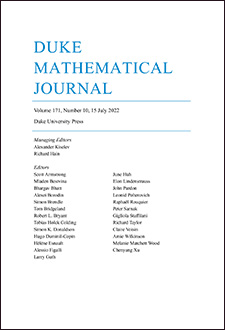Soient $F$ un corps local non archimédien de caractéristique nulle et $N$ un entier pair$\,{\geq}\,2$. On considère les groupes algébriques réductifs suivants, tous deux définis et déployés sur $F:{\bf G}={\bf GL}_{N}$ et ${\bf H}={\bf SO}(N+1)$. Soit ${\bf G}^{+}={\bf G}\times\{1,\theta\}$, où $\theta^2=1$ et $\theta$ agit sur ${\bf G}$ par un automorphisme extérieur non trivial. Ce groupe n'est pas connexe. On note $\tilde{\bf G} = {\bf G}\theta$ la composante connexe qui contient $\theta$. Le groupe ${\bf H}$ est un groupe endoscopique de ${\bf G}^+$. Une conjecture prédit qu' à tout $L$-paquet $\Pi^H$ de représentations admissible, irréductibles et tempérées de ${\bf H}(F)$, on peut associer une représentation admissible et irréductible $\pi^+$ de ${\bf G}^+(F)$, de sorte que la restriction á $\tilde{\bf G}(F)$ du caractère de $\pi^+$ soit un transfert endoscopique du caractère de $\Pi^H$ (lequel est la somme des caractères des représentations appartenant à $\Pi^H$). Cette notion de transfert se traduit par des égalités simples entre les caractères de $\pi^+$ et $\Pi^H$. Dans la seconde partie de cet article, nous démontrerons cette conjecture pour certains $L$-paquets $\Pi^H$ très particuliers, en supposant valide le “lemme fondamental” pour notre paire $({\bf G}^+, {\bf H})$. Dans cette première partie, nous généralisons au groupe ${\bf G}^+$ certains résultats d'analyse harmonique qui sont bien connus pour les groupes connexes. Nous prouvons aussi que le lemme fondamental pour $({\bf G}^+, {\bf H})$ implique un lemme fondamental “non standard” reliant les algèbres de Lie des groupes ${\bf SO}(N+1)$ et ${\bf Sp}(N)$.
Let $F$ be a nonarchimedean local field of characteristic zero, and let $N$ be an even integer at least $2$. Consider the following algebraic groups, both defined and split over $F$: ${\bf G}={\bf GL}_{N}$ and ${\bf H}={\bf SO}(N+1)$. Let ${\bf G}^+={\bf G}\rtimes \{1,\theta\}$, where $\theta^2=1$ and $\theta$ act on ${\bf G}$ as the nontrivial outer automorphism. It is a nonconnected group. Let $\tilde{{\bf G}}={\bf G}\theta$ be the connected component that contains $\theta$. The group ${\bf H}$ is an endoscopic group of ${\bf G}^+$. A conjecture predicts that to every $L$-packet $\Pi^H$ of admissible, irreducible, and tempered representations of ${\bf H}(F)$, we can associate an admissible and irreducible representation $\pi^+$ of ${\bf G}^+(F)$, so that the restriction to $\tilde{{\bf G}}(F)$ of the character of $\pi^+$ is an endoscopic transfer of the character of $\Pi^H$ (i.e., the sum of the characters of the representations belonging to $\Pi^H$). This notion of transfer is equivalent to simple equalities between characters of $\pi^+$ and $\Pi^H$. In the second part of this article, we give the construction that associates $\pi^+$ to $\Pi^H$, and we prove the equalities between their characters. We consider only $L$-packets of discrete series representations of “unipotent reduction.” (This property includes representations that contain nonzero vectors invariant by an Iwahori subgroup.) Our result is conditional: we suppose a fundamental lemma for our pair $({\bf G}^+,{\bf H})$. In the first part, we generalize for the group ${\bf G}^+$ certain results of harmonic analysis which are well known for connected groups. We also prove that the fundamental lemma for $({\bf G}^+,{\bf H})$ implies a “nonstandard” fundamental lemma relying on the Lie algebras of the groups ${\bf SO}(N+1)$ and ${\bf Sp}(N)$.

